Honda is set to launch “an element of direct sales” e-commerce this autumn, as the brand prepares for a long-term future with dealerships under the “lightest touch” agency terms for new car sales.
Its forthcoming electric-powered SUV, the e:Ny1, will be sold direct to customers by the car brand when order books open later this year.
“Whilst we don’t see a demand to buy cars online, we definitely see a demand to complete chunks of that process online and get that instant gratification in that self-service environment,” Honda UK’s head of automobile Rebecca Adamson told AM’s editor Tim Rose recently.
Honda is set to launch “an element of direct sales” e-commerce this autumn, as the brand prepares for a long-term future with dealerships under the “lightest touch” agency terms for new car sales.
Its forthcoming electric-powered SUV, the e:Ny1, will be sold direct to customers by the car brand when order books open later this year.
“Whilst we don’t see a demand to buy cars online, we definitely see a demand to complete chunks of that process online and get that instant gratification in that self-service environment,” Honda UK’s head of automobile Rebecca Adamson told AM’s editor Tim Rose recently.
“Because the contract is direct between Honda and the customer, which we have to have for that full online sale, we are entering into the lightest possible touch of non-genuine agency, simply because that’s the legal requirement.”
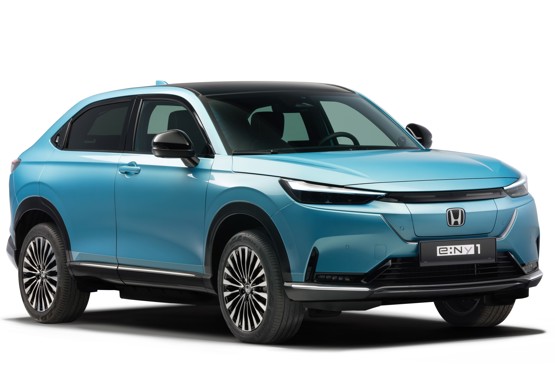 She said that consumers who want to go to the dealership as they always have to buy the new electric car will see no difference, or they can order online, but the important thing is that they have the choice.
She said that consumers who want to go to the dealership as they always have to buy the new electric car will see no difference, or they can order online, but the important thing is that they have the choice.
To enable this Honda and its dealer network is updating all its back-end systems, which “is a good and a bad thing,” she said. “Yes, we’re putting in top quality software-as-a-service solutions, however that means massive disruption and change. You can have the best plans ever but you have to be conscious that at some point something is not going to go exactly to plan, and we’ll just continue to have pragmatic conversations.”
She added: “We’re conscious that we’re going to have to work closely to make sure the disruption is minimal.”
 She said Honda’s management team had looked closely at full agency models and decided on this approach. “Practically every manufacturer is doing a variation on a theme, from adopting a full franchise position to adopting a full agency position, and you have to wonder what the right answer is. I think only the history books will tell us.”
She said Honda’s management team had looked closely at full agency models and decided on this approach. “Practically every manufacturer is doing a variation on a theme, from adopting a full franchise position to adopting a full agency position, and you have to wonder what the right answer is. I think only the history books will tell us.”
Franchisees were consulted on it in late 2022, and two-way communication has continued. At the moment both Honda and franchise investors are in agreement, and she hopes that will continue, although there may naturally be bumps along the way.
It is being seen as a pilot, and Adamson said that ultimately the entire Honda new car line up will be moved to direct-to-consumer transactions.
But that will only be when the management team is confident it works.
“Ultimately, and I make no apologies for this, we have to have a viable business for Honda in the UK. With every manufacturers’ investment in battery electric vehicles, none of us see a return on that for probably a decade, so we’ve got to take out cost. However, when presenting this to our investors we’ve done some clear profit modelling that demonstrates that we both benefit from this change.”
She said Honda has not had as broad a new car choice in UK showrooms in recent memory, as it almost doubles the current line-up. Its Jazz, Civic, HR-V, CR-V and Honda e cars will be joined imminently by the ZR-V, then the electric e:Ny1 and a next generation CR-V in hybrid and plug-in hybrid forms.
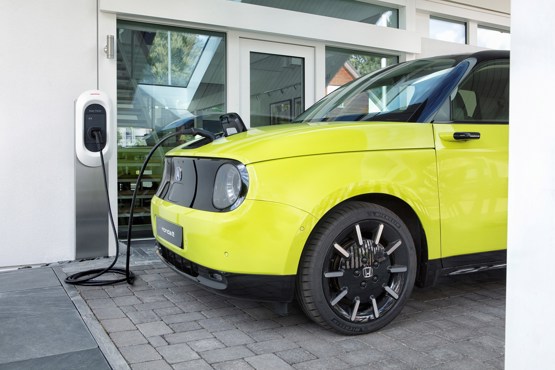 Supply challenges have stabilised, and now the brand is looking to grow sales, but with sustainable profitability in mind.
Supply challenges have stabilised, and now the brand is looking to grow sales, but with sustainable profitability in mind.
The breadth of Honda’s electrification extends beyond its latest products, with continued investment and broadening in scope of the brand’s energy management programme.
Focused on the development of clean energy services, its projects include research into hydrogen as a clean energy carrier, alongside further charging and storage solutions that maximise efficiency and sustainability – the first real-world application of which is e:PROGRESS.
Already available in the UK, the cost-effective and sustainable at-home charging solution is built on clean energy and, with the launch of Honda’s latest SUVs, will be available to drivers of the new e:Ny1 and plug-in CR-V, alongside the existing Honda e electric supermini.
The second phase of the rollout will see customers able to harness solar energy within their charging eco-system. Finally, there are plans to expand the service within Europe, and to owners of non-Honda vehicles.
When she spoke with AM in late May Adamson said average UK dealer return on sales was 2.2%, and partners were happy that returns have improved.
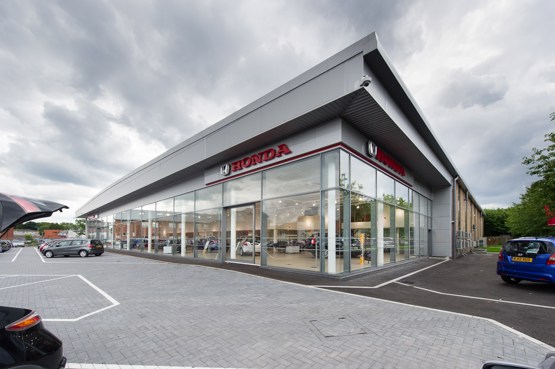 The 2022 outcome for Honda UK – of 25,000 new car sales and just 1.5% market share – was “much lower than we’d hoped for”, she said, due to supply constraints. But during that year franchisees made twice as much profit than in 2019, when sales were 50,000 units and Honda dealers’ average RoS was 1.3%, with a commitment from the carmaker to improve that to 2%. A number of measures drove that improvement, she said, including selling on value rather than discounts, focusing on retail customers, removing distress selling and raised prices. Plus a bit more network rationalisation.
The 2022 outcome for Honda UK – of 25,000 new car sales and just 1.5% market share – was “much lower than we’d hoped for”, she said, due to supply constraints. But during that year franchisees made twice as much profit than in 2019, when sales were 50,000 units and Honda dealers’ average RoS was 1.3%, with a commitment from the carmaker to improve that to 2%. A number of measures drove that improvement, she said, including selling on value rather than discounts, focusing on retail customers, removing distress selling and raised prices. Plus a bit more network rationalisation.
“I know which business model I’d rather have. I think it has been frustrating not being able to get the cars for the network, but the challenge now is that the cars are coming so we all have to get ourselves in gear. All volume is coming back on stream, combined with three new launches, so I think the next few years are going to be quite busy.”
The ZEV mandate, when finalised, will also play a part, she said. Honda will absolutely meet the requirements.
While the industry has enjoyed a “pull market” with demand exceeding supply, a UK Government mandated minimum proportion of annual registrations as EVs will require more “push” activity from car brands to convert consumers, she said.
In the coming years, with all models and sales streams optimised for profitable sales, Adamson believes “probably 40-ish to 45” thousand is the sweet spot for Honda’s UK new car registrations annually. Honda will compete on value, not by being cheapest, and will not chase market share at the expense of returns, she said. Marketing is about to ramp up to win over consumers – Adamson said the spend in the second half of 2023 will be Honda’s highest in seven years. “The phrasing we used is ‘we all need to move out of hibernation’.”
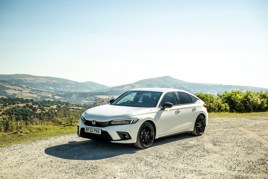 Yet again she reiterated Honda will not chase unprofitable, harmful sales, and it knows the market it wants to play in. In the total market the brand sits in 22nd place; in the alternative fuel vehicle retail market, where 90% of Honda’s sales are, it ranks 2nd. “So it is about optimising what our potential is.”
Yet again she reiterated Honda will not chase unprofitable, harmful sales, and it knows the market it wants to play in. In the total market the brand sits in 22nd place; in the alternative fuel vehicle retail market, where 90% of Honda’s sales are, it ranks 2nd. “So it is about optimising what our potential is.”
That focus on profitability will be needed given the transition the industry is going through. Honda must offer the right business model to keep the right quality retail partners in the years ahead. Being neither the biggest nor the most profitable is fine for Honda if it can be sustainable. Since 2016 the Honda retail network has determined its supply volume requirement, and Honda will not push more cars into the market – she wants dealers to want more.
Currently, after five to six years of dealership rationalisation, the network is at 115 sales points held by around 50 franchise investors; this will drop further to just below 100 sites, and slightly fewer franchisees, with dealerships grouped into market areas where the retail partner will agree with Honda what the right physical representation is for that area, including multi-brand sites and authorised repairer locations as necessary.
She said Honda has seen benefits from dual-branded locations that maintain its representation and focus.
As customer needs evolve the representation must evolve too, she said, although she expects demand for service to always be there. Research done for the 2016 rationalisation plan found customers would travel 45 minutes for the sale and 32 minutes for aftersales, and Honda will continue to assess customer needs in consultation with retail partners.
Login to continue reading
Or register with AM-online to keep up to date with the latest UK automotive retail industry news and insight.

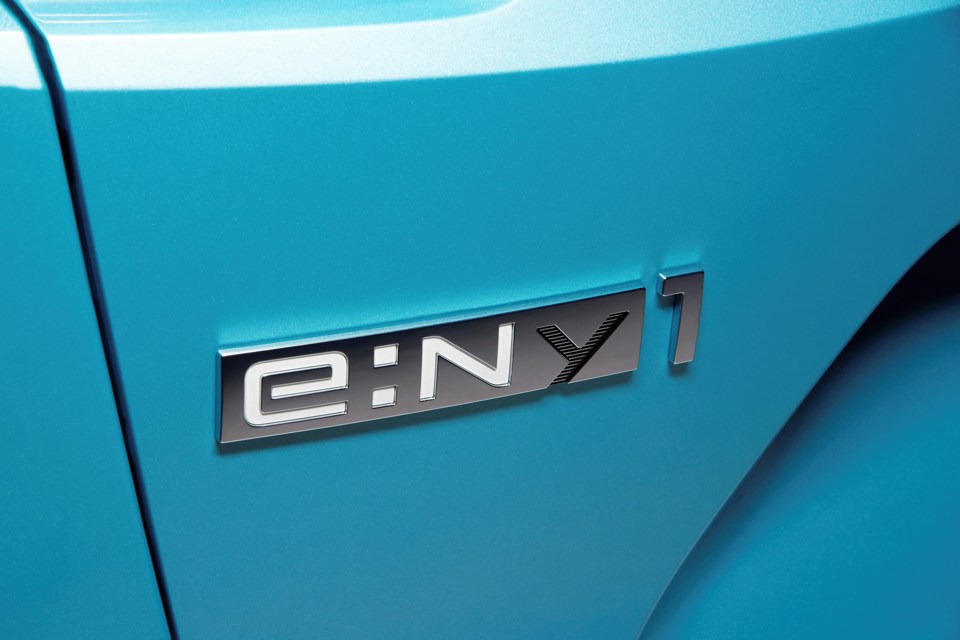




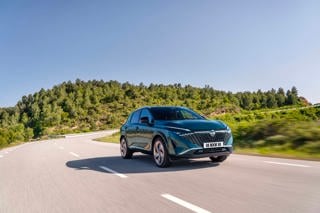
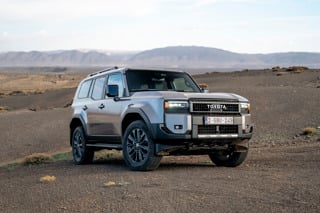

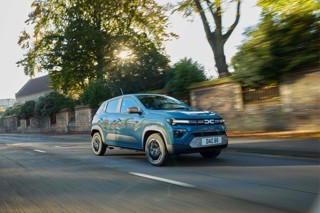
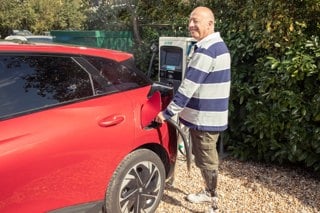











Login to comment
Comments
No comments have been made yet.